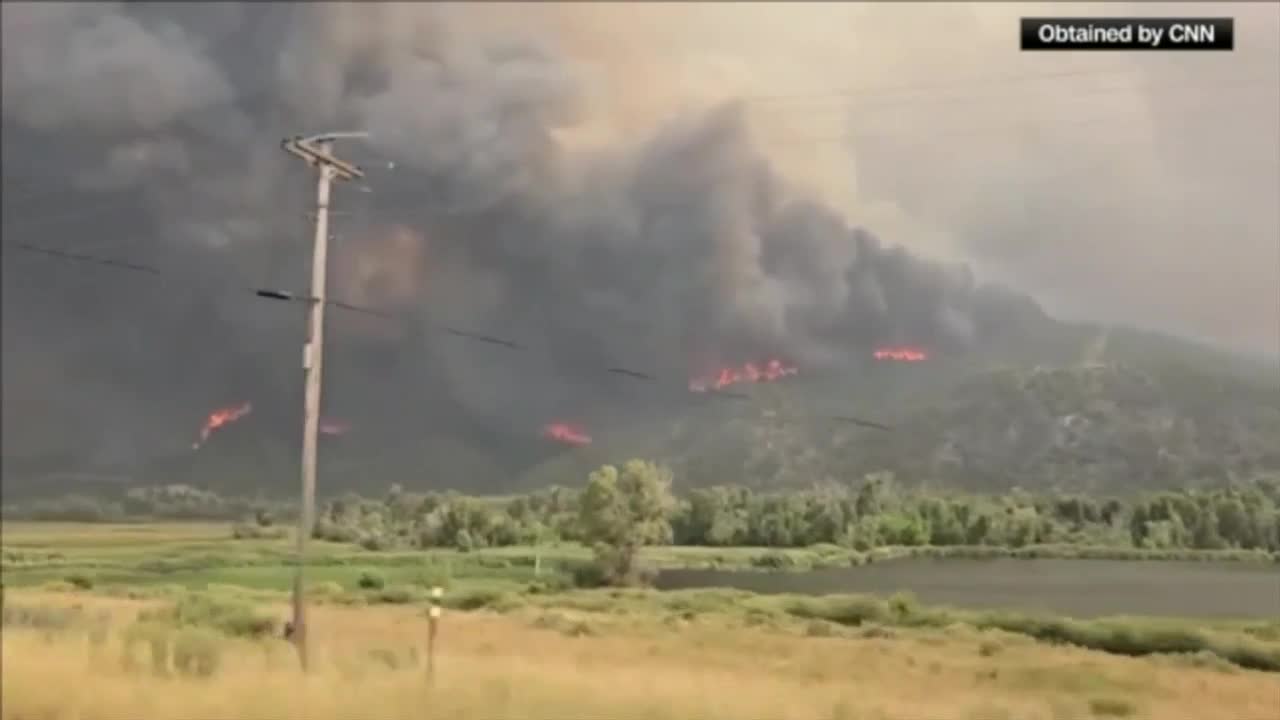FORT COLLINS, Colo. — As wildfires scorch the Western Slope, Coloradans may consider the air quality in different parts of the state before spending time outside this weekend.
Research shows that particulate matter spread into the air during wildfires is harmful to humans. But, is the same true for dogs?
That's the question a new study being conducted at Colorado State University (CSU) aims to answer.
"Dogs do really different things. Some of them are couch potato dogs. Some of them are, you know, Colorado adventure dogs. And so their exposure to pollutants is sometimes so variable," said Dr. Colleen Duncan, a professor of veterinary medicine at CSU, who is working on the new research.
To combat that variability among dogs, Duncan explained that this research depends on the detailed health records from more than 3,000 golden retrievers across the country as part of the Golden Retriever Lifetime Study.

"These dogs have been followed for much of their lifetime, sometimes their entire life, depending on when they enrolled," Duncan explained. "We know now something about the types of diseases they got, whether they got allergies, whether they got cancer, whether they got gastrointestinal disease, skin disease, all those types of things, and try to look for patterns in whether pollution was associated with the development of any of those diseases."
Duncan expects to explore patterns that also correlate with the location where the dogs reside.
"Dogs definitely travel with their people, right? They go on trips and they go hiking. But it's a little bit easier to sometimes pin down an animal's exposure," Duncan said. "They don't necessarily go to work and school every day, the way people do. And so, dogs are probably also really great sentinels of their household. You know, they stay at home during the day. You know where they are during the day."
The retrospective data from the dogs — who are not purposefully exposed to any harmful air quality as part of this research — are just one part of the study. It will also rely on data produced by CSU's Department of Atmospheric Sciences.
"What we can do is use this really amazing data set, which actually was developed by folks at CSU, and pulled all together about wildfire smoke and pollution levels everywhere across the U.S. — and then we're able to find the dog that, like, lived in Denver for a while, and then moved to Austin for a while, and then moved to California for a while — and we figure out their exposure and all those different sites and add it up across their lifespan. So, in that way, it's really just representative of their lived experience," Duncan said.

Wildfire
Colorado wildfires: Some progress on Lee Fire as correctional facility evacuated
The research is expected to be completed in roughly two years. Duncan hopes to find solutions stemming from the answers collected during the study, addressing how to protect pets against poor air quality best.
"That Air Quality Index is developed for people for a really good reason to protect the health of people, and so you can make informed decisions about what to do that day. Unfortunately, for animals, we don't have, like, an animal equivalent," Duncan said. "It says things like, 'Don't put your children outside to play' or whatever. But what does that mean for your dog or your horse?"
The results of this study are also applicable to humans, according to Duncan.
"We can learn a lot from animals that will also translate to people," Duncan said. "It can be very hard to figure out an individual person's lifetime exposure, right? If you live for 80 years, first of all, it takes 80 years to do that study. So, can we maybe learn some things from dogs in their sort of shorter time with us?"
Duncan suspects that the health issues related to poor air quality in humans will likely be reflected in dogs as well.
She said this research is especially important given the increasing threat of wildfires in the future.
"It's something that we, unfortunately, have experienced now every summer," Duncan said. "We will have wildfire smoke here. And I think this is a really exciting opportunity for us at CSU... to really be working on this important topic that is in our backyard."
The Morris Animal Foundation is funding the study through a grant.






